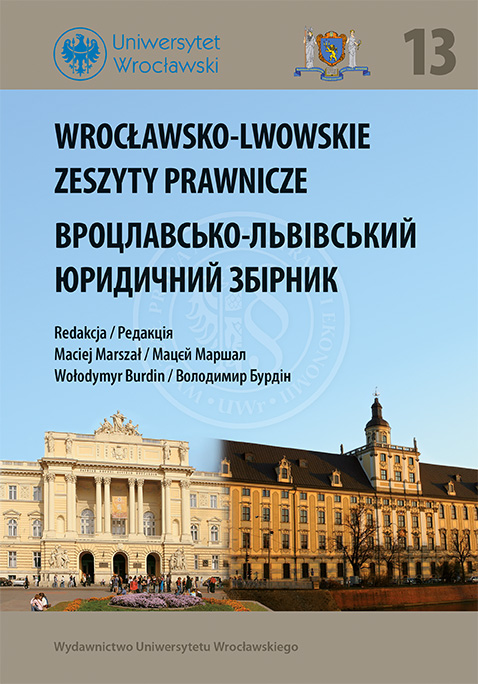

Artykuły

The article is devoted to the general theoretical characteristics of the phenomenon of legal doctrine. For a long time, the author has repeatedly argued that scholars who use in their work adjectives derived from the term “law” (that is, “legal”), should first declare on what legal understanding it is based. After all, as is well known, all previous and current interpretations of this term are pluralistic. It is likely to remain the same in the future, especially given the insurmountable social heterogeneity of any society in the modern world. If this caveat is openly discussed, then in many cases debates on issues in which these adjectives are used risk resembling a discussion between blind and deaf interlocutors.
After all, the sign, the property of “legality,” is usually associated with the regulatory activities of the state, with the will of its organs. However, among other types of legal understanding (in particular, for example, the so-called “natural” or sociological, including the so-called communicative or psychological) state-regulatory activities are often not mentioned at all, although these adjectives are actively used. Thus, in the latter case, legal doctrines will already be outside those doctrines that are not based on legal-positivist legal understanding, and therefore cannot be considered literally “legal,” although they will remain legal doctrines.
According to the results of Lviv research conducted under my leadership in the early 1960s (these results were published in the article “Phenomena of law: The necessary interpretation” in the journal Law of Ukraine, no. 6, in 2019, as well as in the book Fundamentals of Theory and Philosophy of Law, published in Lviv in 2021) the number of phenomena denoted by the term “law” reaches almost fifteen.
Under this approach, “jurality” and “legality” can hardly be considered unambiguous properties, characteristics of certain social phenomena. Therefore, not every legal (in the sense just defined) doctrine, that one that is declared, supported, implemented by the state (represented by its bodies, officials), is always jural and not all subjects can be qualified as legal.